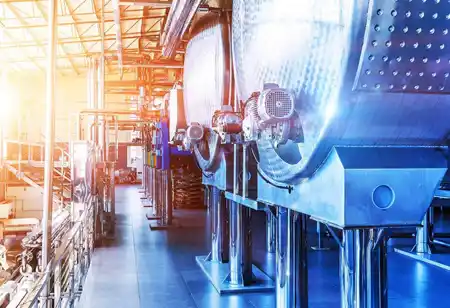The chemical industry is firmly committed to ensuring safety and security.
FREMONT, CA: The chemical industry plays a crucial role in the global economy by manufacturing various products essential for our daily lives. However, the handling and production of chemicals come with inherent dangers. This underscores the significance of safety and security as foundational principles within the industry.
Safety:
Chemical safety primarily concerns preventing accidents and injuries to workers, the public, and the environment. It encompasses various measures aimed at averting chemical releases, fires, and explosions and safeguarding workers from exposure to hazardous chemicals. Key aspects of chemical safety include:
1. Process Safety: This entails the safe design and operation of chemical processes, incorporating appropriate safety equipment and protocols.
2. Risk Management: Identifying and assessing risks associated with chemical processes, followed by steps to mitigate these risks.
3. Training and Education: Ensuring that workers receive proper training and education regarding the safe handling of chemicals.
4. Emergency Preparedness and Response: Developing and implementing plans and procedures to respond effectively to chemical accidents and emergencies.
Security:
Chemical security focuses on preventing theft or misuse of chemicals for malicious purposes. It includes measures to hinder unauthorized access to chemical facilities and materials and to track and monitor the movement of hazardous chemicals. Essential components of chemical security encompass:
1. Physical Security: Utilizing physical barriers, like fences and gates, to secure chemical facilities and materials.
2. Access Control: Regulating access to chemical facilities and materials and maintaining records of who has accessed them.
3. Material Control: Monitoring and tracing the movement of hazardous chemicals throughout the supply chain.
4. Incident Response: Establishing plans and procedures for addressing chemical security incidents.
The Significance of Safety and Security:
Safety and security are indispensable in the chemical industry for several reasons:
1. They protect workers, the public, and the environment from harm.
2. They bolster public confidence in the industry.
3. They help prevent costly accidents and disruptions.
Additional Best Practices:
In addition to the essential safety and security elements mentioned above, there are several other best practices that the chemical industry can adopt to further reduce risks:
1. Cultivate a Culture of Safety and Security: Foster a deep-seated commitment to safety and security among all employees, irrespective of their organizational level.
2. Continuous Improvement: Chemical companies should regularly review and enhance their safety and security programs to ensure effectiveness and relevance.
3. Collaboration with Regulators and Stakeholders: Chemical companies should collaborate closely with regulators and other stakeholders, such as emergency responders and community groups, to develop and implement effective safety and security plans.
By adhering to these best practices, the chemical industry can sustain its commitment to operate safely and securely while contributing to society's well-being.
Conclusion:
The chemical industry is firmly committed to ensuring safety and security. By adopting the appropriate measures, the industry can guarantee safe and secure chemical production, handling, and transportation.

